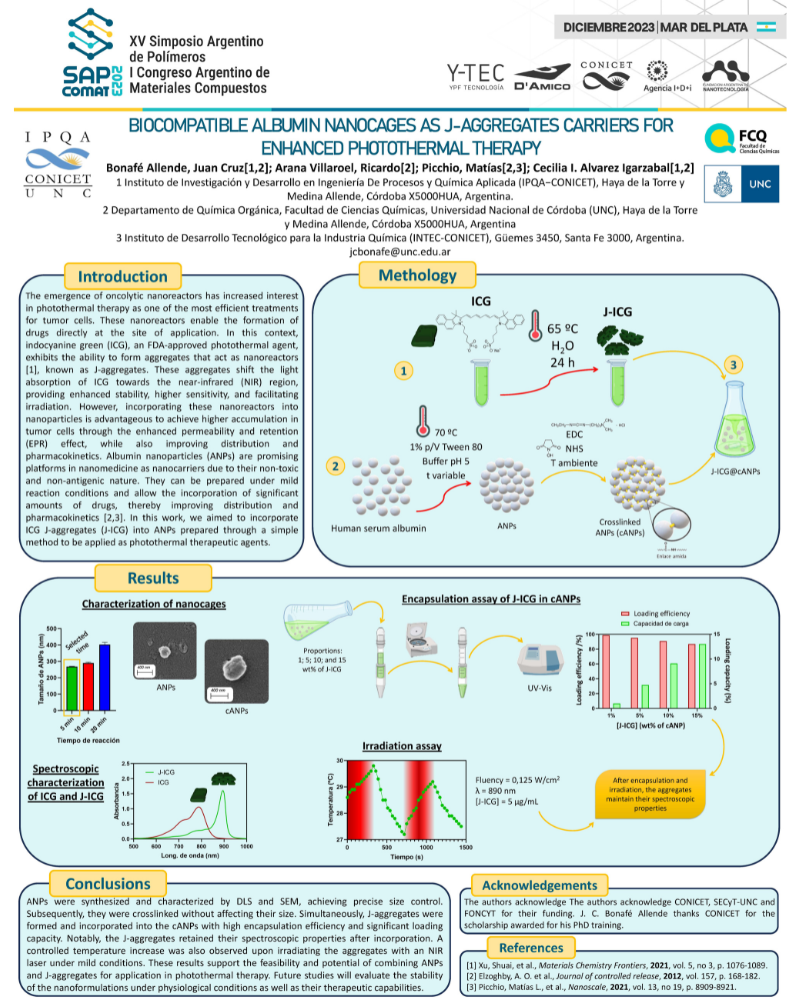
The development of sustainable nanotechnology aligns with the principles of green chemistry, offering innovative solutions with reduced environmental impact. In this work, we present biocompatible and biodegradable nanocages as carriers for J-aggregates designed for photothermal therapy applications. These nanocages are synthesized using renewable feedstocks and prepared with green solvents such as water and ethanol, minimizing the use of hazardous chemicals. Compared to conventional platforms based on inorganic materials like silica or metals, these nanocages exhibit significantly lower environmental impact while maintaining high performance. The materials are engineered for degradation under physiological conditions, ensuring minimal ecological persistence and promoting safe disposal. Understanding that health and the environment are interconnected, this system exemplifies how sustainable design can address both therapeutic and ecological challenges. Additionally, the synthesis method prioritizes less hazardous chemical processes, further contributing to the sustainability of the system. This approach not only supports therapeutic innovation but also highlights the critical role of green chemistry in advancing environmentally conscious nanomedical technologies.